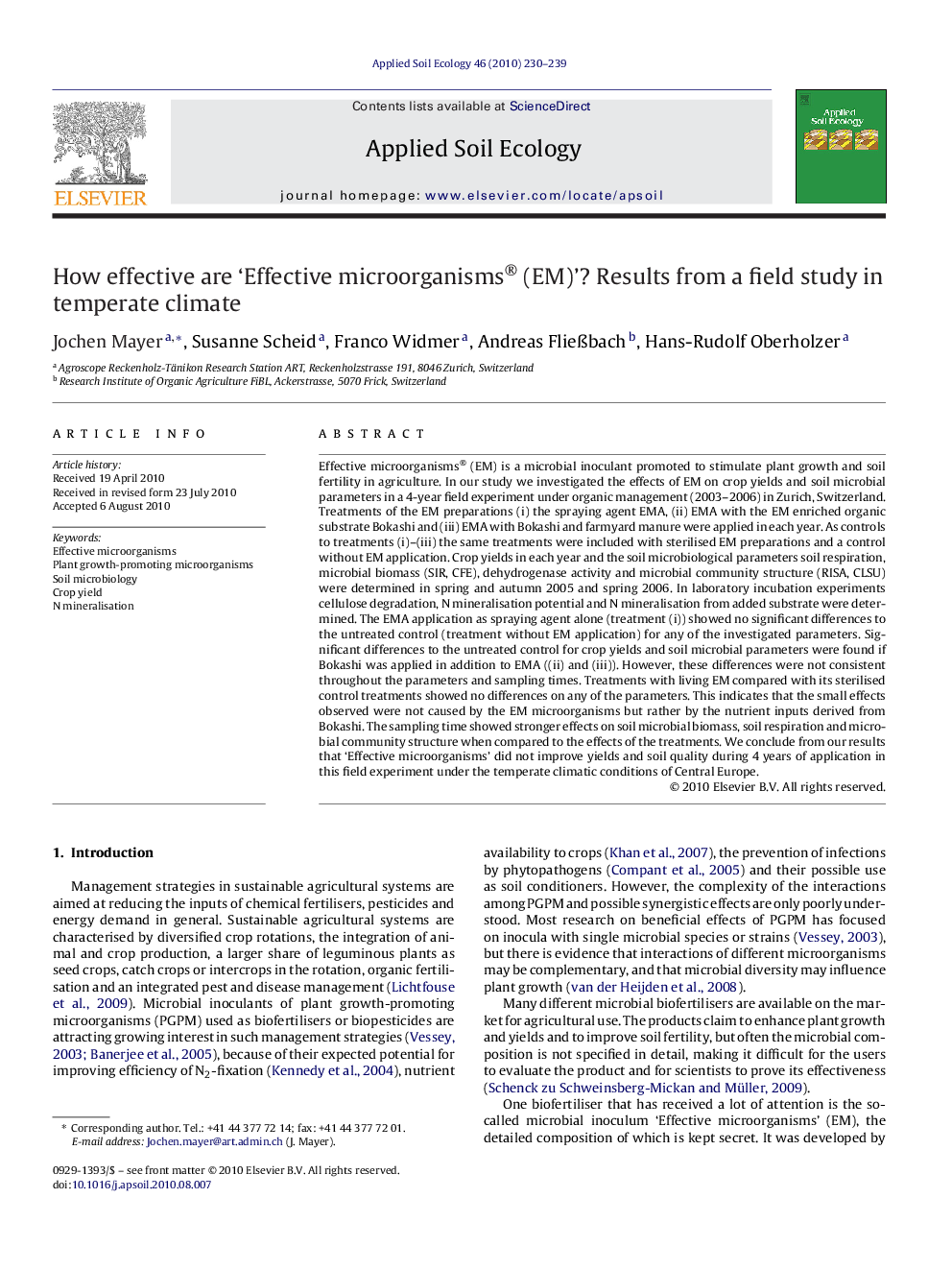| کد مقاله | کد نشریه | سال انتشار | مقاله انگلیسی | نسخه تمام متن |
|---|---|---|---|---|
| 4382896 | 1304237 | 2010 | 10 صفحه PDF | دانلود رایگان |

Effective microorganisms® (EM) is a microbial inoculant promoted to stimulate plant growth and soil fertility in agriculture. In our study we investigated the effects of EM on crop yields and soil microbial parameters in a 4-year field experiment under organic management (2003–2006) in Zurich, Switzerland. Treatments of the EM preparations (i) the spraying agent EMA, (ii) EMA with the EM enriched organic substrate Bokashi and (iii) EMA with Bokashi and farmyard manure were applied in each year. As controls to treatments (i)–(iii) the same treatments were included with sterilised EM preparations and a control without EM application. Crop yields in each year and the soil microbiological parameters soil respiration, microbial biomass (SIR, CFE), dehydrogenase activity and microbial community structure (RISA, CLSU) were determined in spring and autumn 2005 and spring 2006. In laboratory incubation experiments cellulose degradation, N mineralisation potential and N mineralisation from added substrate were determined. The EMA application as spraying agent alone (treatment (i)) showed no significant differences to the untreated control (treatment without EM application) for any of the investigated parameters. Significant differences to the untreated control for crop yields and soil microbial parameters were found if Bokashi was applied in addition to EMA ((ii) and (iii)). However, these differences were not consistent throughout the parameters and sampling times. Treatments with living EM compared with its sterilised control treatments showed no differences on any of the parameters. This indicates that the small effects observed were not caused by the EM microorganisms but rather by the nutrient inputs derived from Bokashi. The sampling time showed stronger effects on soil microbial biomass, soil respiration and microbial community structure when compared to the effects of the treatments. We conclude from our results that ‘Effective microorganisms’ did not improve yields and soil quality during 4 years of application in this field experiment under the temperate climatic conditions of Central Europe.
Research highlights▶ Effective Microorganisms (EM) showed no effects on crop yields in a 4-year field experiment. ▶ EM showed no effects on soil microbial parameters characterizing biomass, structure and activity. ▶ Observed effects of EM preparations could be related to nutrient inputs by EM carrier substrates. ▶ Ecological impact of EM on soil quality was small whereas effects of sampling time exceeded EM effects.
Journal: Applied Soil Ecology - Volume 46, Issue 2, October 2010, Pages 230–239